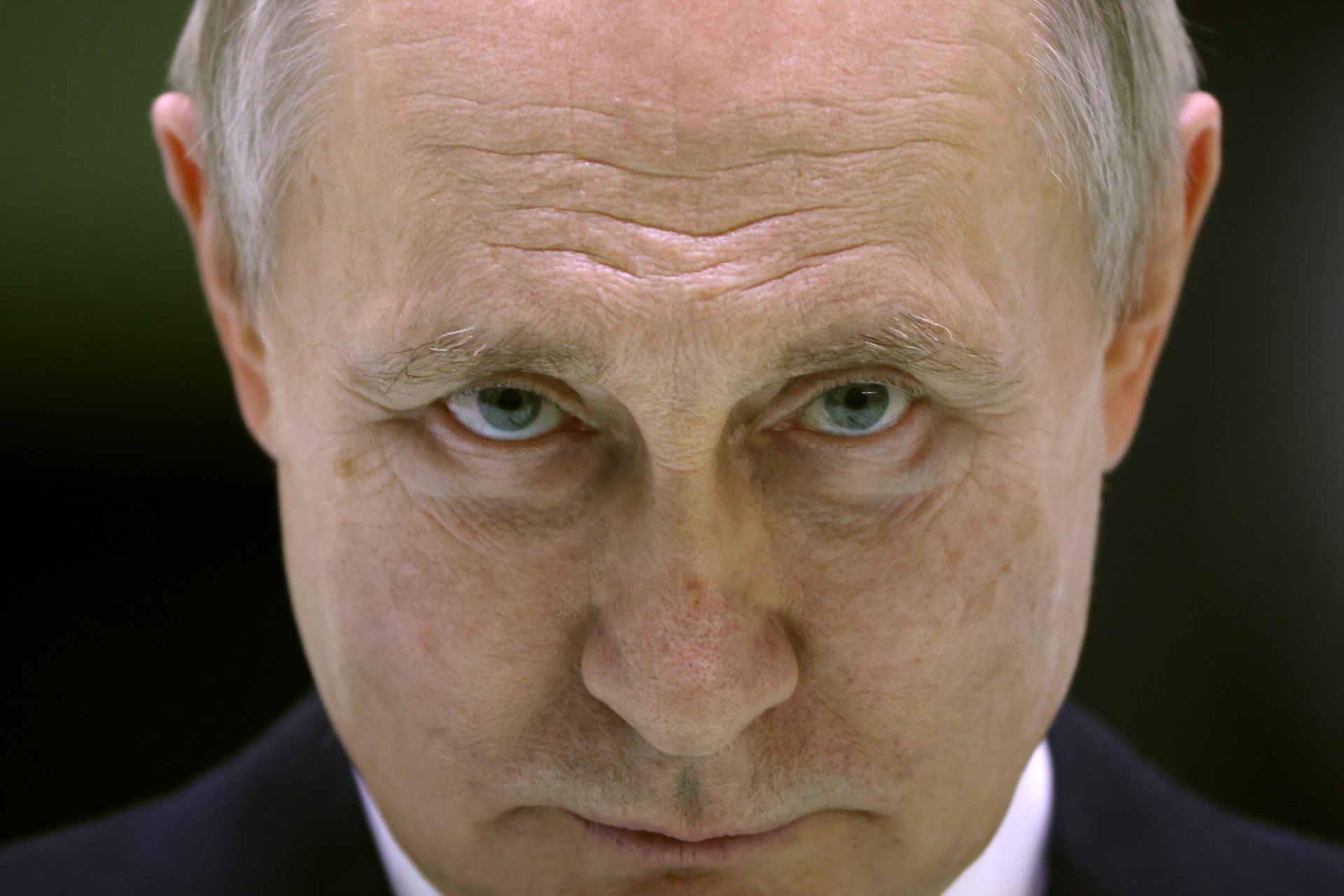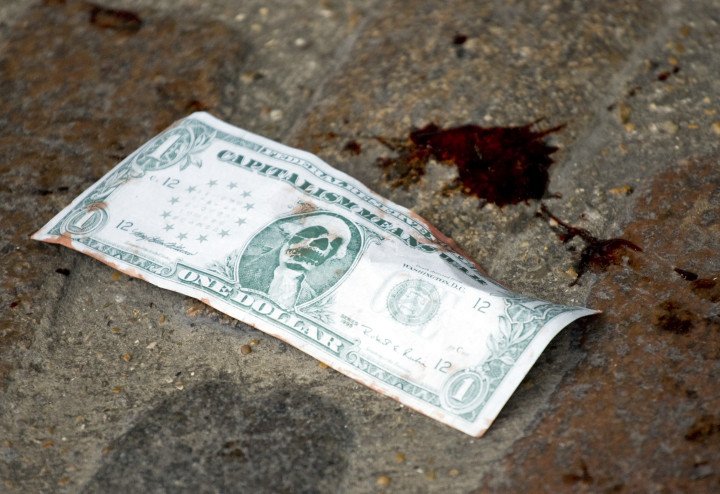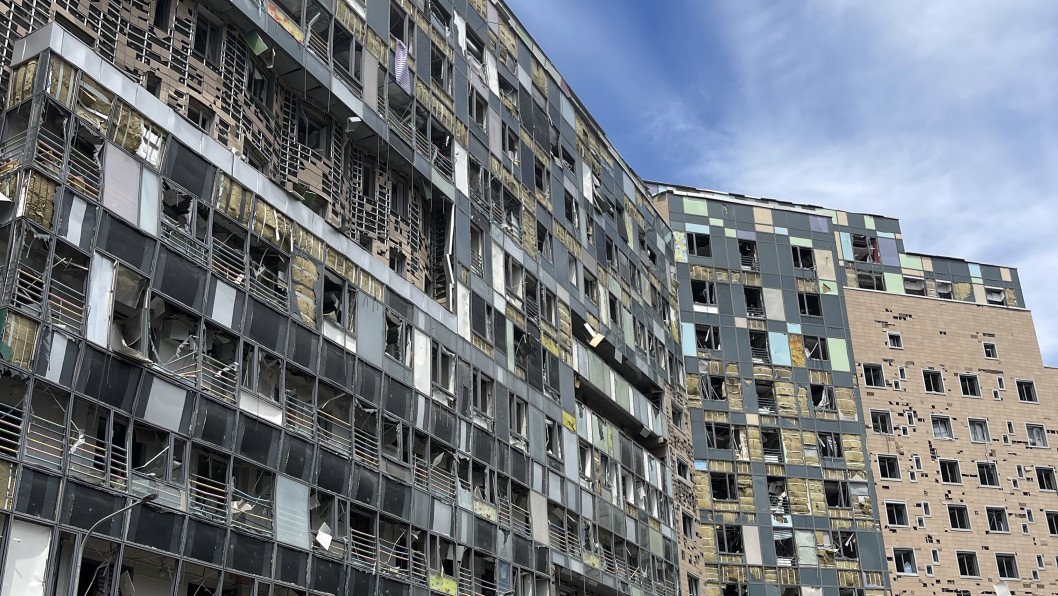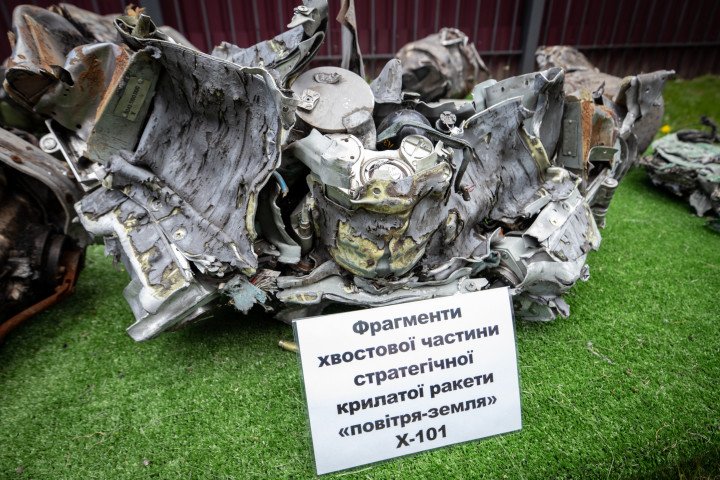- Category
- Business
Russia Evading US Sanctions Through Shell Companies

Russia keeps bypassing hundreds of U.S. sanctions on entities, individuals, and businesses. From using U.S.-made parts in weapons striking Ukraine to pushing propaganda to millions worldwide through a U.S.-based company, the Kremlin poses a serious threat to global security. How do they do it?
Ukraine imposed new sanctions against Iran and Russia. The decree specifically targets the supply of Iranian ballistic missiles to Russia, which Russian forces are actively using to attack Ukrainian civilians. Signed by Ukrainian President Zelenskyy on September 24, 2024, the decree sanctions six citizens of Russia and Iran for ten years, along with 40 legal entities from these countries.
However, despite the swift response to Iran’s potential supply of Fath-360 missiles to Russia, experts say the sanctions are still not fully effective, partly due to circumvention schemes like shell companies.
It is “necessary to block shell companies and control European air carriers and airports cooperating with sanctioned and fictitious companies,” said Denys Hutyk, Ukraine’s Senior Advisor to the Economic Security Council, according to reports.

The fight against Russia’s illicit “dark money” has been a challenge for several years. Even at the “U.S. National Security Strategy of December 2017” Russia was identified as a “key challenge, a revisionist power that uses technology, propaganda, and coercion to shape a world antithetical to our interests and values.”
All of these challenges involve dark money, money that is hidden, potentially illicit, illegal, or legally ambiguous.
Back then, Russia had the world’s largest volume of dark money hidden abroad—about $1 trillion, reported the Atlantic Council. They estimated that one-quarter of this amount was controlled by Putin and his close associates.
Russian oligarchs and kleptocrats funneling dark money, work within a complicated system, moving money in anonymous shell companies, through offshore jurisdictions and at speed.
Kleptocrats pose a serious threat to global security as this money can be used for espionage, terrorism, political manipulation, disinformation, and many other nefarious purposes.
Though the U.S., UK, and other governments around the world have worked on policies and strategies to reduce Russia’s ability to hide illicit financing, the problem remains.
Recently, Russia has again been found to use shell companies abroad. This time, to fuel their propaganda machine through prominent U.S. YouTubers and even obtain Western parts to use in their weapons in their war against Ukraine.
A kleptocrat is a leader who makes himself or herself rich and powerful by stealing from the rest of the people.
Cambridge Oxford dictionary
What are shell companies?
Shell companies, in simple terms, are businesses that have legal structures, but no real operations or assets.
Though not illegal by definition and can sometimes have legitimate purposes, shell companies are often used to obscure and conceal sources and destinations where illicit money is flowing.
When used for money laundering purposes, it can be difficult for authorities to trace a source of money flowing through them. Part of a complicated structure, designed to make investigating and holding those involved in illegal business to account, extremely challenging.
The flight of Russia’s wealth abroad has been supported by big banks and a global industry of professionals who specialize in providing rich clients with shell companies, trusts and other secretive vehicles.
— ICIJ (@ICIJorg) March 3, 2022
Here's some of the enablers uncovered by ICIJ. https://t.co/XfAqmyQTeL
An issue with incorporating a shell company is that to create it, there is rarely any official paperwork or identification required. Therefore, those named as beneficiaries could be listed under a false name, for example.
They often bypass screening processes and their layered transaction structure can be used to obscure links to sanctioned Russian individuals and entities, along with trading in restricted goods. Genuine-looking invoices can be submitted without thorough checks, ultimately legitimizing the funding.
Initially, money is placed into a banking system so money can be transferred online. Then, the money is passed through a layered system, which is where shell companies are key. The money is sent through a complex series of transactions between individuals and often across a variety of jurisdictions and international borders, hiding the original source of funds.
Then finally, the money seems to be legitimately clean and it becomes difficult to attribute it to illicit and illegal activity. The money can be stored in shell companies or used to invest through traditional methods such as buying property or gold.
Many different transactions can be made through shell companies, making the trail complicated to trace. The chain often involves many individuals, other companies, and countries.
Sanctioned RT (Russia Today) channel still operates via shell companies
A Russian propaganda network was recently revealed to be operating through shell companies, paying millions of dollars to U.S. “social media personalities” to push propaganda narratives.
The Kremlin’s meddling knows no bounds, funding American TENET Media @watchTENETnow with $10 million to push pro-Russian narratives through its commentators @Timcast @RubinReport @bennyjohnson and their vast follower base. TENET Media founders @TheLaurenChen allegedly knew… pic.twitter.com/x36DC66uXw
— UNITED24 Media (@United24media) September 7, 2024
Russian state-controlled media outlet RT (Russia Today) was sanctioned and forced to cease formal operations in the U.S., Canada, the UK, and the EU following Russia’s full-scale invasion of Ukraine in 2022.
In response, the U.S. Department of Justice (DOJ) found that employees of RT created an "entire empire of covert projects designed to shape public opinion in Western audiences."
The DOJ lifted the lid on two employees of RT for using “fake personas and shell companies” to embark on a “secret influence campaign in the US”.
Two RT Employees Indicted for Covertly Funding and Directing U.S. Company that Published Thousands of Videos in Furtherance of Russian Interests
— U.S. Department of Justice (@TheJusticeDept) September 4, 2024
🔗: https://t.co/UfRPQO9QEz pic.twitter.com/2OUJXwRqlH
They spent nearly $10 million to publish RT-curated content through a Tennessee-based online content creation company, Tenet Media. Since its public launch in November 2023, the company has posted nearly 2,000 videos, amassing over 16 million views on YouTube alone.
The indictment did not specifically name Tenet Media or any of the influencers but the DOJ indictment’s description of the company matches the six right-wing social media personalities it promotes.
Tenet Media founders Liam Donovan and his wife Lauren Chen, who had previously written opinion pieces for RT struck a deal to promote Kremlin propaganda. Dave Rubin, Benny Johnson, and Tim Pool, among others regularly posted aggressive anti-Ukraine, pro-Russian videos and also showed strong support for Donald Trump in the up-and-coming 2024 elections.
After being exposed of receiving Russian money, YouTube has eliminated the channels of the Tenet Media, as well as several more aligned to it. Around 1 million subscribers worth of Russian influence operation gone. pic.twitter.com/nru1W5n6IS
— (((Tendar))) (@Tendar) September 6, 2024
“The subject matter and content of the videos are often consistent with the Government of Russia's interest in amplifying U.S. domestic divisions in order to weaken U.S. opposition to core Government of Russia interests, such as its ongoing war in Ukraine,” the DOJ indictment states.
Money was sent through shell companies in Turkey, the United Arab Emirates, and Mauritius.
The wire notes for this money often described the payments as electronics purchases. For example, one stated that a payment of $318,800 from a shell company on March 1 2024 was for “BUYING GOODS-INV.013-IPHONE 15 PRO MAX 512GB.”
“The Justice Department will not tolerate attempts by an authoritarian regime to exploit our country’s free exchange of ideas in order to covertly further its own propaganda efforts, and our investigation into this matter remains ongoing,” Attorney General Merrick B. Garland said.
Tim Pool (@timcast): outed as a Russian propagandist. Tim was being paid $100,000 a week by Tenet Media. TM took millions in Kremlin cash as part of “a scheme to create and distribute content to U.S. audiences with hidden Russian government messaging"). Don't lie Tim, you knew. pic.twitter.com/I3HjxAIbdt
— Anonymous (@YourAnonNews) September 5, 2024
The DOJ notes that an indictment is “merely an allegation, all defendants are presumed innocent until proven guilty beyond a reasonable doubt in a court of law.”
RT Propaganda
RT pushes varied Russian propaganda, specifically matters involving the Kremlin's interests especially when reporting on Russia’s war in Ukraine and political issues within the U.S.
They persistently pursue information campaigns to create domestic division in an attempt to weaken opposition to the Russian government.
For example, the indictment notes that, when discussing RT’s coverage of the UK’s exit from the EU in 2016, an RT journalist recalled telling an academic researcher, “I asked my editor what is RT’s line for this (Brexit), and he said, ‘Anything that causes chaos is RT’s line.’”
RT's editor-in-chief in February 2024 declared during a Russian television appearance, that "public opinion in the West is changing, very rapidly and very cheerfully."
Further explaining that, despite being "banished everywhere on February 25 (2022)" due to Russia’s full-scale invasion of Ukraine, RT had built "an enormous network, an entire empire of covert projects that is working with the public opinion, bringing truth to Western audiences."
Despite being sanctioned, RT has still been very much operational.
Meta bans Russian state media outlets over ‘foreign interference activity’ https://t.co/bh4LTKWKLL
— Anonymous Operations (@AnonOpsSE) September 17, 2024
How did they do it?
Kostiantyn Kalashnikov, aka "Kostya," and Elena Afanasyeva, aka "Lena,"—"Founder-1" and "Founder-2" as per the indictment—have been charged with conspiracy to commit money laundering and conspiracy to violate the Foreign Agents Registration Act (FARA).
“US Company-1”—as per the indictment, suspected to be Tenet media – never disclosed to its viewers that it was funded and directed by RT. Nor did Company-1 or its two founders register with the Attorney General as an agent of a foreign principal, as required by law.
Founder-1 and Founder-2 contracted commentators to produce videos, using their own names and existing audiences, for license and publication by Company-1.
The founders, Kostya and Lena, managed to conceal Company-1’s true funding source—RT—by attributing the funds to a completely fictional persona they invented, “Eduard Grigoriann.”
Posing as an outside editor, Kostya edited Company-1 content and monitored their funding and hiring. Lena posed as other members of the team under the names of “Helena Shudra” and "Victoria Pesti" who directed the posting of hundreds of videos by Company-1. She also collected information and gave instructions to Company-1 staff.
They then created a web of businesses, Czech Shell Entity-1, Canadian Company-1, Hungarian Shell Entity-1, and more. The indictment shares the in-depth communications between the shell companies, fictional Eduard Grigoriann, the founders, and their commentators. Thus, building this ginormous fictional network, all in an attempt to cover their tracks.
The lengths that they went to create this propaganda network are astonishing, and incredibly complex and are an example of just how maze-like money laundering schemes can be for investigators.
My diagram below helps illustrate the complex scheme alleged today by the U.S. government involving Russia Today and its covert operations in the United States.
— Jackie Singh 🥥🌴 (@HackingButLegal) September 5, 2024
At the top, we see the Kremlin directing and funding RT.
RT operates through two main channels: its parent… https://t.co/t1KvbknI90 pic.twitter.com/saPHYkevuE
How has this impacted the war in Ukraine?
Company-1 pushed several anti-Ukraine propaganda narratives.
For example, after the terrorist attack in Moscow for which ISIS had already claimed responsibility, Company-1 was instructed to blame Ukraine. "I think we can focus on the Ukraine/U.S. angle… The mainstream media spread fake news that ISIS claimed responsibility for the attack yet ISIS itself never made such statements. All terrorists are now detained while they were heading to the border with Ukraine which makes it even more suspicious why they would want to go to Ukraine to hide.”
The next day, they confirmed that Commentator-3 (one of the U.S. social media personalities) said, “he’s happy to cover it.”
In one of Tim Pool's videos, he claimed that “Ukraine is the enemy of this country”, that Ukraine triggered the conflict by blowing up the Nord Stream pipeline, and that everyone should “apologize to Russia.”
Out of the four, Pool was the one who went ALL IN with his videos. In one of his videos, he claimed that “Ukraine is the enemy of this country”, that Ukraine triggered the conflict by blowing up the Nord Stream pipeline, also suggesting that “we should apologize to Russia”.
— Pekka Kallioniemi (@P_Kallioniemi) September 5, 2024
7/20 pic.twitter.com/M1BRBaUGYU
The Kremlin media arm edited and curated the promotion of pro-Russian messages such as a video of Tucker Carlson gushing over his visit to a supermarket in Russia.
Elon Musk reshared videos posted by Tenet Media more than 60 times to his 198 million followers, the viewership data published by X indicated.
RT for many months was able to push Kremlin propaganda, already reaching millions of people across the globe. Those knowingly, or unknowingly sharing the Kremlin's propaganda, have been called “useful idiots”.
The U.S. personalities couldn’t have been paid directly by Russia without the complex use of shell companies and their money laundering schemes. This is a perfect example of how Russia’s kleptocrats use shell companies for political manipulation and disinformation.
Western parts for Russian weapons used against Ukraine
On July 8, 2024, a Russian Kh-101 missile attacked Ukraine’s largest children's hospital. The missile was filled with U.S.-made electronics which had been restricted for use, Ukraine’s National Agency on Corruption Prevention reported.


How do Western electronics make it to Russia, even with strict sanctions placed on them? The New York Times demonstrates in their thorough investigation into 135 Bonham Strand, an address in Hong Kong found to facilitate the shipments of restricted U.S. military technology to Russia, through four shell companies.
Russia received nearly $4 billion in U.S.-sanctioned chips and sensors for Russian military use since their full-scale invasion of Ukraine began. NYT reported that since February 2022, more than 6,000 companies, including those at Hong Kong’s 135 Bonham Strand have poured U.S. electronics into Russia.
They found that even with U.S. sanctions and trade restrictions, “Russia established such a robust parallel supply chain that it imported almost the same number of critical chips in the last three months of 2023 that it did in the same period in 2021.”
The NYT report states that U.S. chip makers sell their products to international distributors and are not legally required to track their movements post-shipment. Countries like Hong Kong, Turkey, India, etc are likely to distribute their products.
The “middlemen” are offshore businesses and shell companies. The four shell companies found at Bonham Stand are owned by oligarchs linked to Russia’s military-industrial base, according to NYT analysis.
One Russia-linked firm was fronted—apparently, unknowingly—by a Latvian-Canadian retiree in a two-story house in Toronto, Canada.
Defying sanctions, Russia has obtained nearly $4 billion in restricted chips since the war began in Ukraine. Many were shipped through a cluster of shell companies in Hong Kong. https://t.co/dtAJLOc2lx
— The New York Times (@nytimes) July 25, 2024
NYT found that one business registered at Bonham Strand, Saril Overseas, was controlled by a Russian businessman, Alexey Chichenev. Chichenev and his partner, Mikhail Vinogradov, over the next decade, began managing a dozen shell companies.
Their structures crossed with holding companies in the British Virgin Islands and Cyprus. Shares in the companies were transferred between Russian businessmen with addresses in places like Vienna, Tel Aviv, and Paris. Showcasing the vast network of jurisdictions and international borders needed to investigate such a network and supply chain.
Two companies at Bonham Strand, Rikkon and Midicon, were owned separately by Andrey Kozitsyn and Igor Kudryashkin. They are former directors of the “Ural Mining and Metallurgical Company” with ties to Putin, weapons manufacturing, and Russian organized crime.
In 2014, after Russia annexed Crimea, Kozitsyn and Kudryashkin transferred ownership of Rikkon and Midicon to Chichenev and Vinogradov. By 2022, Chichenev and Vinogradov controlled at least 11 companies at Bonham Strand.
Only two of those companies sold chips to Russia before the full-scale invasion began, but after 2022, NYT found that others began trading.
Saril Overseas had no record of exports to Russia until six months after the full-scale invasion began. In July 2022 they sent their first shipment, a batch valued at $95,000. By 2024, NYT found that Saril Overseas had shipped nearly $9 million of restricted semiconductors.
Chichenev, interviewed at the door of his Hong Kong apartment, said he “did not know who was behind the companies and had forgotten how they were transferred to his name,” NYT wrote. “You see, it is a friend of my friend in Moscow, so they asked me to help them,” Chichenev said.
The characterless seventh-floor office at 135 Bonham Strand, NYT stated, appeared now unoccupied. No one answered during NYT investigators’ visits to the office and an air-conditioning advertisement hung in the crack of the door.
Even with such evidence, investigations are at a standstill. Sanctions could be placed on businesses like these, but just as they are closed down, new shell companies and their illegal trading are even quicker to begin.
Russian attack drones that kill people in Ukraine daily - Shahed-136/131 & Lancet - are mostly made of Western parts.
— Tymofiy Mylovanov (@Mylovanov) August 30, 2023
The top producers are Texas Instruments, Analog Devices, STMicroelectronics, Microchip Technology Inc. та Hemisphere GNSS. 1/ pic.twitter.com/SZg5tYpEg8
-46f6afa2f66d31ff3df8ea1a8f5524ec.jpg)
-270e13af43760897c8cb3e7f3ee9adf1.png)

-b63fc610dd4af1b737643522d6baf184.jpg)

-099180a164f53abb1128c9b5025a2b0e.jpg)
-4390b3efd5ecfe59eeed3643ea284dd2.png)